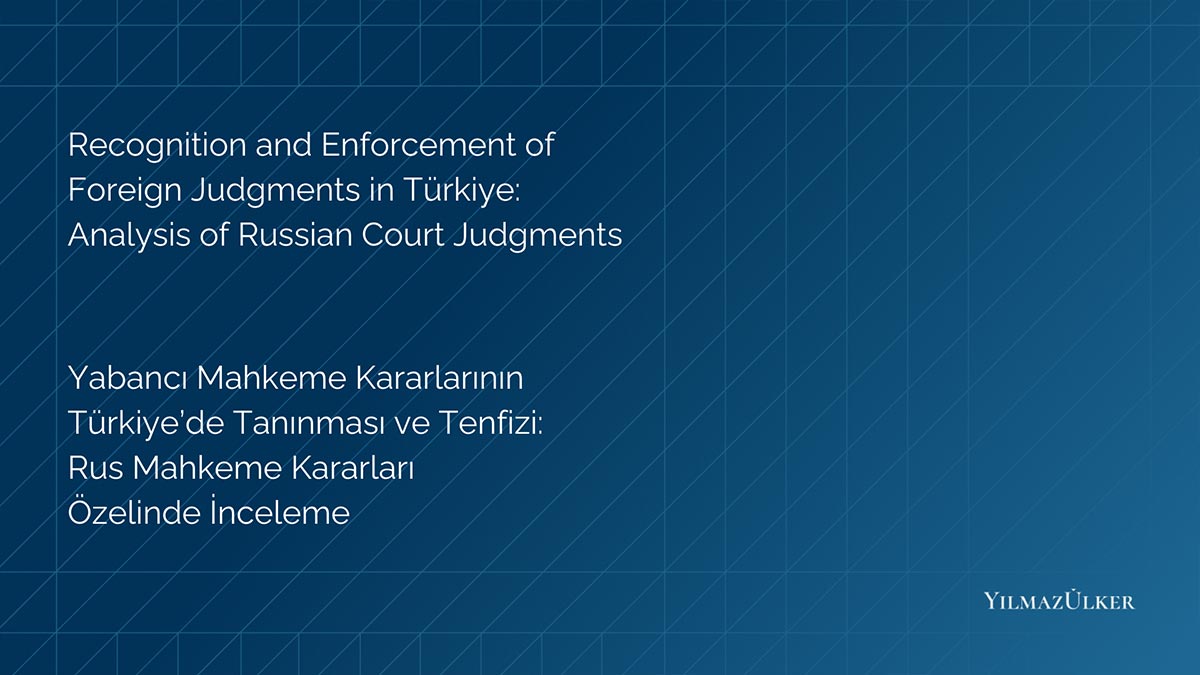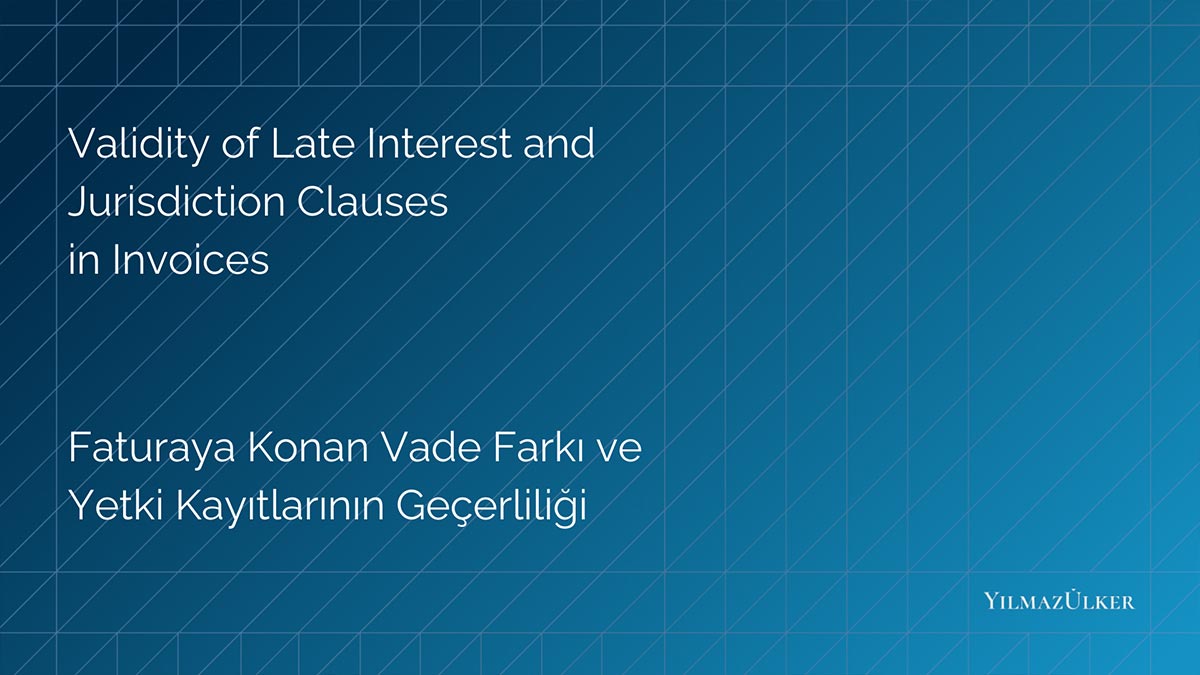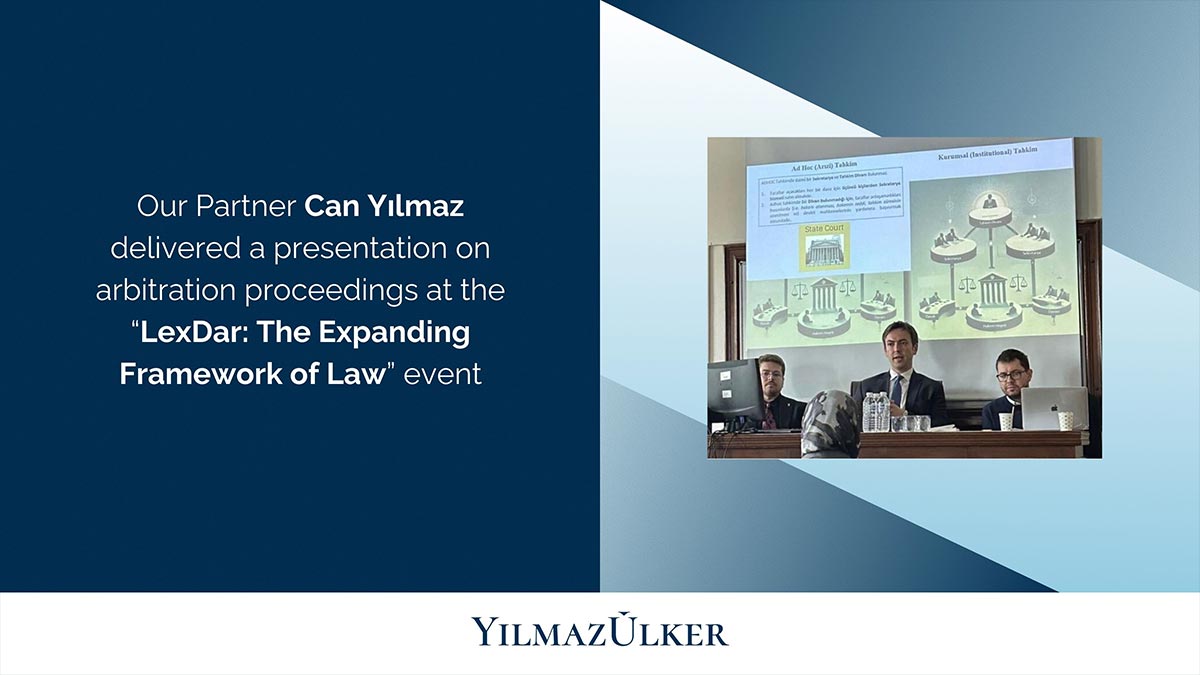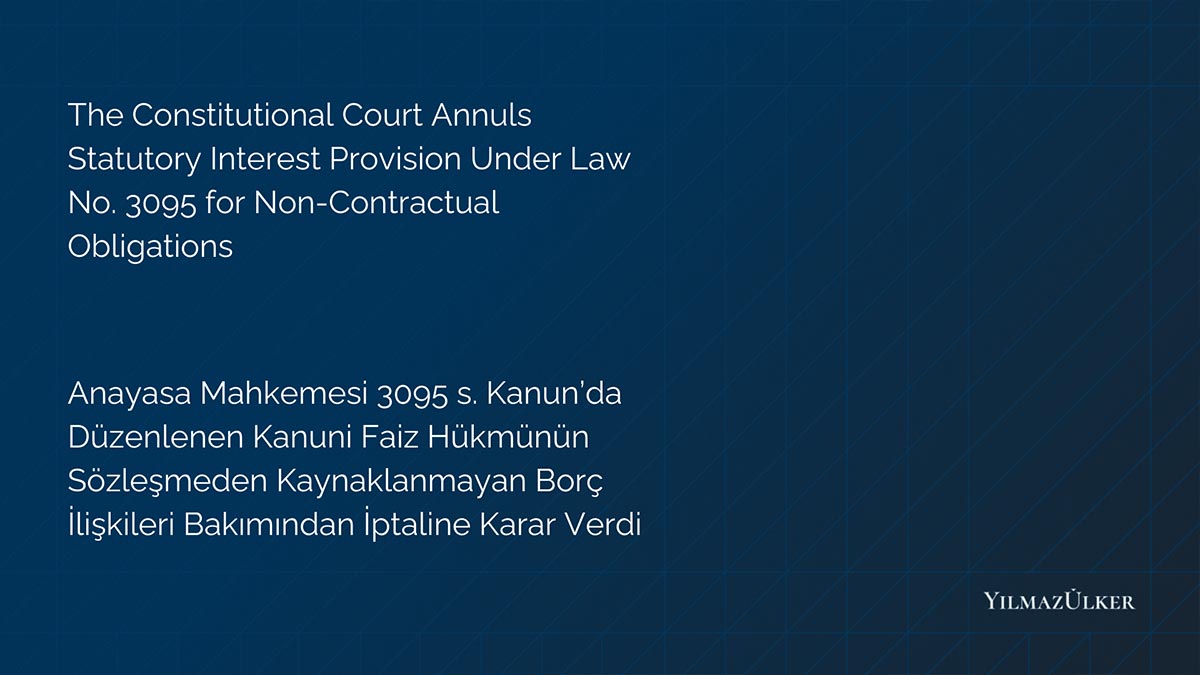News & Publications

Recognition & Enforcement of Foreign Judgments in Türkiye: Analysis of Russian Court Judgments
Requirements
Foreign court judgments can be enforced in Türkiye as per bilateral treaties undersigned by Türkiye and the state where the judgment was rendered in. In case there is no such treaty, foreign judgments would be recognized and enforced providing that they satisfy the requirements set forth under the Turkish Private International Law No. 5718 (“PIL”).
The party seeking recognition and enforcement must file an exequatur lawsuit before the competent Turkish court. Turkish courts would refrain from examining the merits of the case. Instead, the courts focus on whether the below requirements of the PIL are satisfied:
- As the first and foremost condition, there should be reciprocity between Türkiye and the relevant state. Reciprocity is deemed exist if (i) there is a treaty between Türkiye and the relevant state stipulating that court judgments issued in one of the states may be enforced in the other state or (ii) the laws of the relevant state allows recognition and enforcement of Turkish court judgments in such state. In case neither of such conditions exists, there should be de facto reciprocity, meaning that each state recognizes and enforces judgment rendered in the other state despite lack of a treaty or a specific law to that effect.
- The subject matter of the judgment should not fall under the exclusive jurisdiction of the Turkish courts or issued by a court that has no jurisdiction over the parties or the subject matter.
- The judgment should not be against the Turkish public policy. The concept of public policy under Turkish law is evaluated separately for each case, and the judge has discretionary power in this regard. It would be safe to say that, in recent years Turkish courts have become more pro-enforcement and thus been inclined to interpret public policy in a narrow manner.
- The foreign court must have respected the due process rendering the judgment. That is to say, the defendant against whom the enforcement is requested must have been duly summoned to the court and given the right to a fair trial.
- Foreign judgment must be final and binding. The fact that the judgment is not appealable should be certified by the competent authorities of the foreign state. The original or duly certified and apostilled copy of the certification must be submitted to the court for exequatur.
Procedure
The party seeking the exequatur is obliged to prove that the above conditions are satisfied and furnish the Turkish court with all necessary documents. It would be beneficial for the claimant to explain the underlying dispute and its particulars to the Turkish court in a concise manner, so that the court would get the gist of the dispute but at the same time would not be triggered to delve into the merits.
As for the duration of the proceedings, it would generally take around a year for a First Instance Court to issue its decision on the recognition and enforcement. However, in the event that the recognition and enforcement application is satisfactory in terms of presentation of the legal and factual ground and the claimant provides a full set of necessary documents in a flawless manner, the court may issue its decision in the first or second hearing within 6 months. Such terms may increase depending on the weight of the defendant’s challenges and workload of the relevant court.
The decision of the First Instance Court will be subject to a two-tier appeal process before regional courts of appeal and the Court of Appeal respectively. Appeal suspends execution of the judgment. Each appeal process may take up to 12 months. As stated above, such terms may increase depending on the workload of the relevant chamber of regional courts of appeal and the Court of Appeal.
Notable Fees and Other Expenses
The party filing a recognition and enforcement lawsuit is obliged to deposit a proportional court fee (approx. 7% of the amount awarded in the judgment) to initiate the lawsuit. Only one fourth of such amount is required to be paid at the outset of the proceedings. The balance of the court (¾) fee is requested from the losing party at the end of the proceedings. The court also orders the defendant to reimburse the claimant for the initial court fee amount if the recognition and enforcement claim is accepted.
Apart from the court fees, foreign legal and real persons that intends to initiate any sorts of legal proceedings before Turkish courts or debt collection offices are required to post a security (caution judicatum solvi) at the time of filing. It is at the Turkish court’s discretion to determine the amount of security. In practice, the security is generally set within a range 15% to 40% of the judgment amount. The court will exempt the claimant from such security if there is reciprocal exemption.
Recognition and Enforcement of Russian Court Judgments
According to customs regulations, Customs Directorates accept three types of guarantees for imports into the country; these are, respectively, cash, treasury bills/government bonds, and bank guarantee letters.
In terms of the reciprocity, there is no unilateral or bilateral treaty between Russian Federation and Türkiye stipulating enforcement of court judgments. However, there are significant number of Turkish court decisions [1] where Russian court judgments were recognized and enforced. Therefore, it is safe to say that there is a de facto reciprocity between Türkiye and Russia. Despite such decisions, for each specific case it is likely for a Turkish court to ex officio issue a writ to the relevant directorate of the Ministry of Justice to inquire whether a de facto reciprocity exists.
A Russian claimant would only have to pay a court fee as explained above when lodging a recognition and enforcement lawsuit. No security shall be required from Russian legal and real persons since both Türkiye and Russian Federation are party to the Convention. Article 17 of the Convention exempts nationals of contracting states from posting securities to initiate legal proceedings in other contracting states.
Provisional Measures
Parties seeking exequatur of a Russian court judgment may consider requesting a provisional measure (provisional injunction or attachment) prior to or simultaneously with the filing of exequatur lawsuit. Given the anticipated duration of exequatur court proceedings as explained above, pursuing a provisional measure would be beneficial to safeguard the future enforcement of the judgment, especially where the defendant is likely to conceal its assets or absconding or preparing to abscond in order to evade the fulfillment of its obligations.
An insignificant fixed fee is required to be paid to file a preliminary measure request. No security is required at the time of the application. A security would need to be deposited only if the measure is granted and the claimant decides to proceed with the enforcement of the measure. The security amount is determined by the court generally 15% – 40% of the disputed amount. It is possible to provide such security in cash or as a bank letter of guarantee.
Bibliography
- [1] Decision of Ankara Regional Appellate Court 31st Civil Chamber Dated 14.09.2021 and Numbered 2021/599 E. 2021/782 K.; Decision of İstanbul Regional Appellate Court 15th Civil Chamber Dated 28.06.2021 and Numbered 2021/267 E. 2021/1283 K.; Decision of İstanbul Regional Appellate Court 15th Civil Chamber Dated 17.10.2023 and Numbered 2022/2298 E. 2023/1086 K.; Decision of İstanbul Regional Appellate Court 15th Civil Chamber Dated 18.01.2022 and Numbered 2021/3417 E. 2022/80 K.; Decision of Ankara 1st Commercial Court of First Instance Dated 11.10.2018 and Numbered 2018/313 E. 2018/658 K.; Decision of İstanbul 15th Commercial Court of First Instance Dated 21.04.2022 and Numbered 2022/118 E. 2022/360 K.; Decision of Ankara 8th Commercial Court of First Instance Dated 07.07.2021 and Numbered 2020/347 E. 2021/464 K.; Decision of İstanbul 1st Commercial Court of First Instance Dated 17.03.2022 and Numbered 2020/484 E. 2022/240 K.; Decision of İstanbul 8th Commercial Court of First Instance Dated 11.10.2018 and Numbered 2018/44 E. 2018/944 K.
The above information reflects the general assessments of YılmazÜlker Attorney Partnership ("YılmazÜlker") regarding the subject matter and do not constitute legal opinion or legal consultancy services. Before taking any action based on the matters stated herein, it is recommended to seek professional legal advice by considering the specific circumstances of the case. YılmazÜlker shall not be held liable for any consequences arising from or in connection with the content of this document.






#YılmazÜlker #foreignjudgments #recognitionandenforcement #russiancourtjudgments #publication